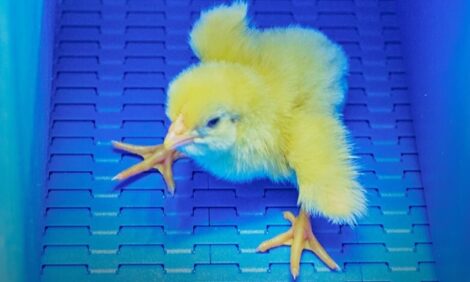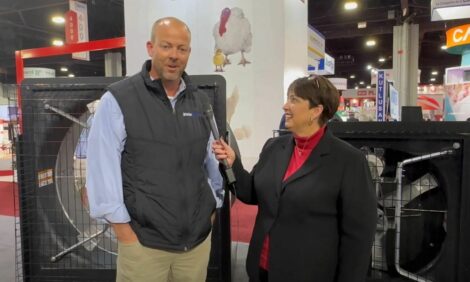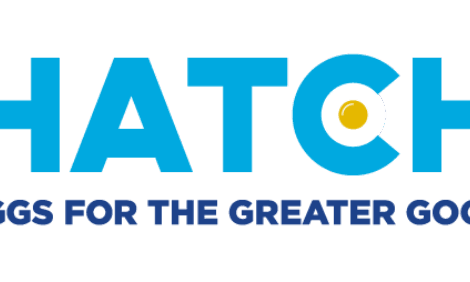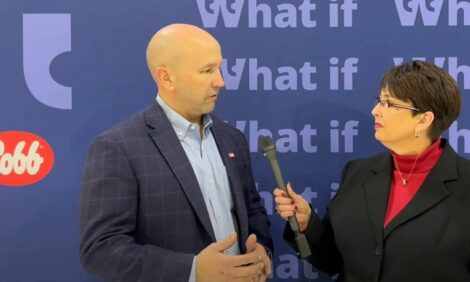



2023 IPPE: Getting the most out of your in ovo program
Zoetis' Dr. Joshua Deines speaks on in ovo opportunitiesPart of Series:
< Previous Article in Series Next Article in Series >
Dr. Josh Deines, poultry technical services with Zoetis, spoke to The Poultry Site’s Sarah Mikesell about how integrators can get the most out of their in ovo program.
“There are a couple of things when you think of in ovo vaccination that can impact its effectiveness. One is where the vaccine is applied within the embryo, which we call the site of injection. A big part is timing as far as when the eggs are transferred and vaccinated during the incubation period while having good equipment like Embrex that can support the process. Our devices can deliver 100% accuracy," said Deines. “The second biggest thing is good sanitation in the overall hatchery program, and it should be regularly monitored in the hatchery.”
Helping integrators face hatchery challenges
“The hatchery is always a challenging place, and we want to make sure to provide support there, first and foremost. We do that with equipment and it starts in its design to deliver good accuracy and has built in fail safes and sanitation on board,” he explained. “Then, we can provide all the training for operators and provide audits and feedback to the hatchery as well for how well their crews are operating.”
Deines describes studies that are conducted to further help producers with specific time frames of embryo development.
“Earlier, I mentioned that when the eggs are transferred and vaccinated is important,” Deines reminded. “We actually do what's called a site of injection study, and that's a service we provide to look at embryo development, hatch window, how uniform the set is and then if you're vaccinating at the appropriate time.”
These studies take place on-site at the hatchery.
“We've got a whole technical service team that supports the hatchery exclusively, anything in ovo or day of age vaccination, so handling of the vaccine all the way through delivery. We help with training, which is part of our added services,” he said. “The other thing I mentioned was sanitation. We do microbial surveys so we can provide current bacterial challenges or and current mold challenge - where it's at and how impactful this is to both your hatch and your vaccination program. We want to create a partnership with our customers to provide feedback on how they can improve.“
Importance of data
“When making decisions, they are only going to be as good as the data used and its accuracy,” he said. “When we do that, it's actually a standard equation and its a weighted formula based on importance to the area of hatchery."
For larger integrators with multiple hatcheries, the data is compared across similar operations, and integrators receive feedback.
"The data needs to correlate to improvements in the field, like profitability, hatch, animal welfare, and health, and you want to see the benefit at the end.”

















